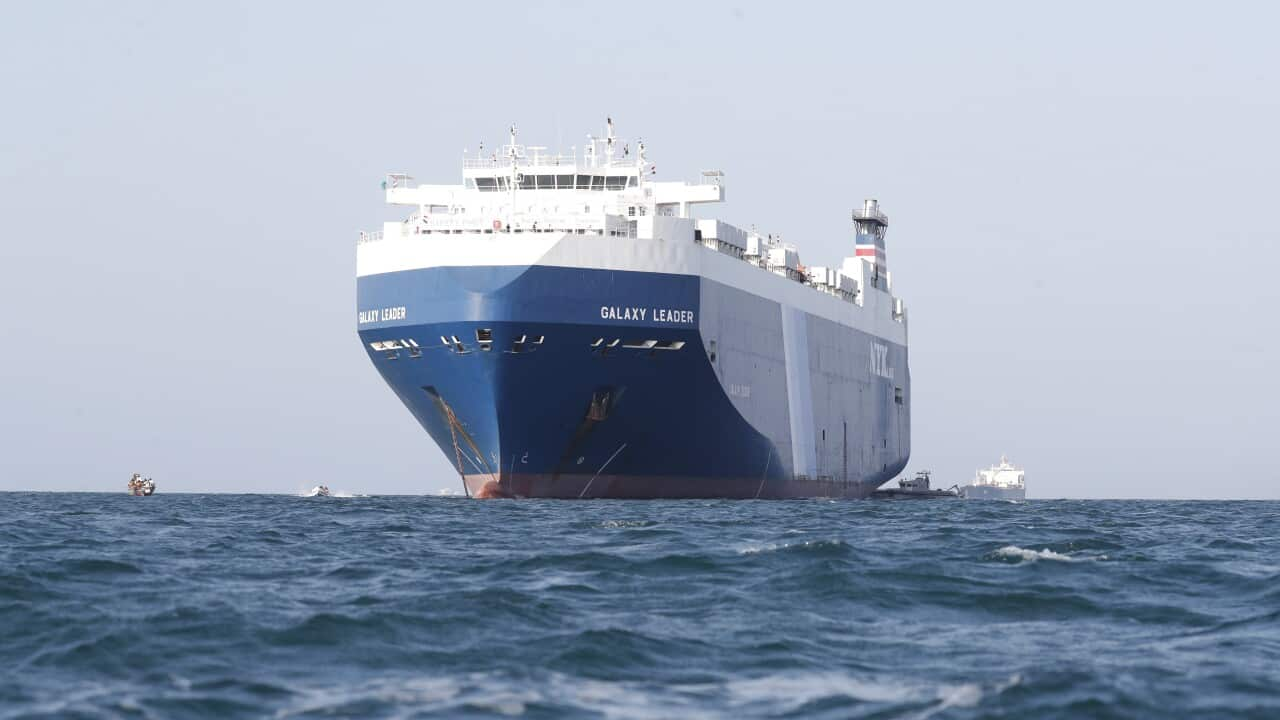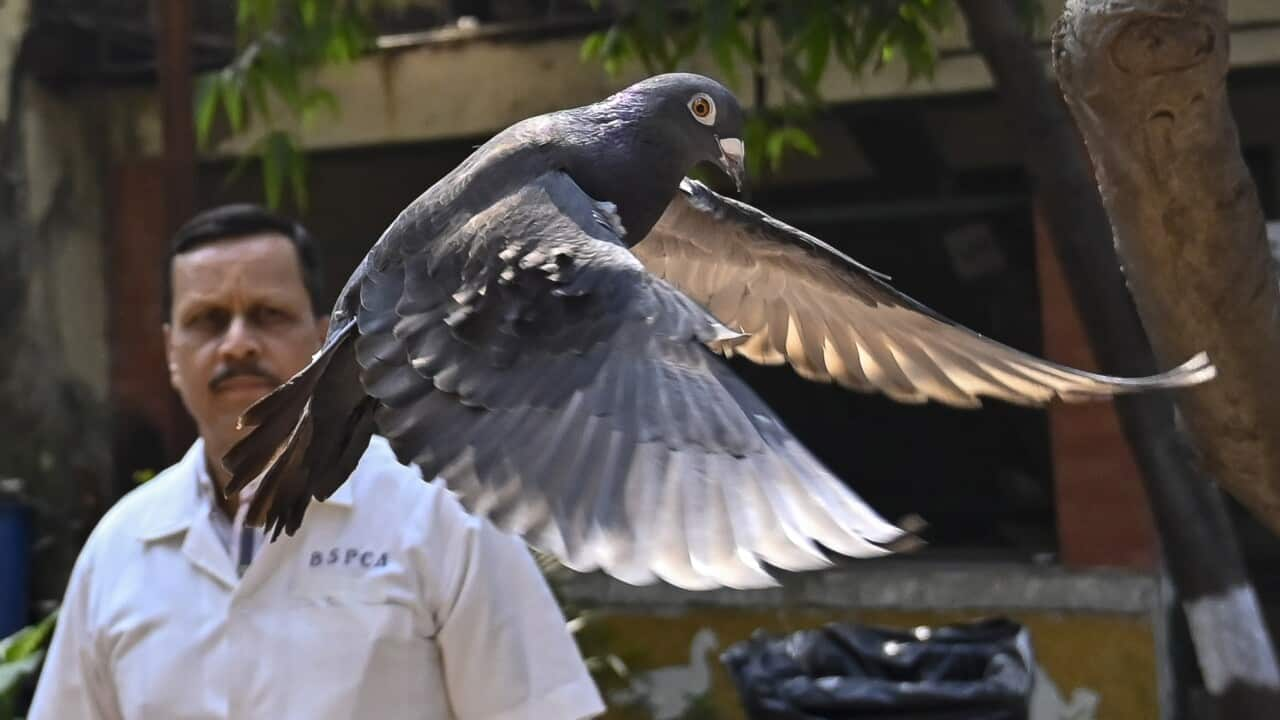Key Points
- The MV Bahijah left Perth's Fremantle dock on 5 January to head to the Middle East.
- It was ordered to abandon its voyage due to fears of a Houthi rebel attack in the Red Sea.
- The ship, which has over 16,000 animals on board, remains at sea — leading to concerns for the animals' welfare.
The fate of thousands of sheep and cattle on a vessel off Perth remains in limbo after Australian authorities rejected a bid to ship the livestock to Israel by going around southern Africa.
About 16,500 livestock have been packed aboard the MV Bahijah since 5 January, when it sailed for the Middle East from Perth's Fremantle before being ordered to abandon its voyage due to
Except for a couple of hundred head of cattle unloaded on Friday, the animals have remained on the vessel since it returned to Australian waters, sparking fears for their welfare as authorities considered an application to send them on another - even longer - journey for export.
On Monday, the Department of Agriculture, Fisheries and Forestry announced it had rejected the exporter's request to again send the livestock towards the Middle East.
"The application submitted on 26 January 2024 for the re-export of livestock onboard the MV Bahijah to Israel via the Cape of Good Hope has not been approved by my department," department secretary Adam Fennessy told reporters in Canberra.
The department said it was continuing to work with relevant stakeholders to manage the health and welfare of the livestock and uphold Australia's biosecurity.
"The next steps for the livestock onboard the vessel are commercial decisions for the exporter to make," Fennessy said.
Animal welfare groups raise concerns for the livestock on board the vessel
A number of animals onboard the MV Bahijah have reportedly died, including some of the cattle offloaded on Friday, according to RSPCA WA.
The animal protection society's chief executive Ben Cave said the sheep and cattle had been "crammed" aboard the ship in "lurching and rolling" seas while standing in their own waste for a month.
RSPCA WA had urged authorities to remove all the livestock from the MV Bahijah to protect their health.
"This ship has been back in Fremantle for a week now - when will a decision be made to allow these animals to be unloaded and processed humanely onshore?" Cave said.
If the animals had been re-exported they were likely to have been at sea for another month as the MV Bahijah sailed around Africa to access Israel via the Suez Canal and avoid the Red Sea - an area where Houthi rebels in Yemen have targeted ships heading to Israeli ports.
Federal Agriculture Minister Murray Watt said the department's decision in relation to the MV Bahijah had to balance export legislation, animal welfare considerations and the requirements of Australia's international trading partners.
"I am advised that the next steps for the livestock on board are the responsibility of the exporter," he said in a statement.
"I encourage members of the WA meat processing supply chain to assist with the handling of these animals, which are prime Australian produce.
"I know that all Australians expect a swift outcome, that complies with Australia's strict biosecurity protocols and maintains strong animal welfare standards."
The Australian Livestock Exporters Council said in a statement on Tuesday that "any moves to use this issue to attempt to further the government's proposed ban on live sheep exports would be cheap, callous and cynical".
The federal MP for Fremantle, Labor's Josh Wilson, said the wellbeing of the animals on board the MV Bahijah had been prioritised.
They would now not "suffer what would have been one of the longest live sheep voyages in the history of this blighted trade," he said in a statement.
While he recognised it was up to the exporter to propose another option, Wilson urged them to get the animals ashore as soon as possible.












